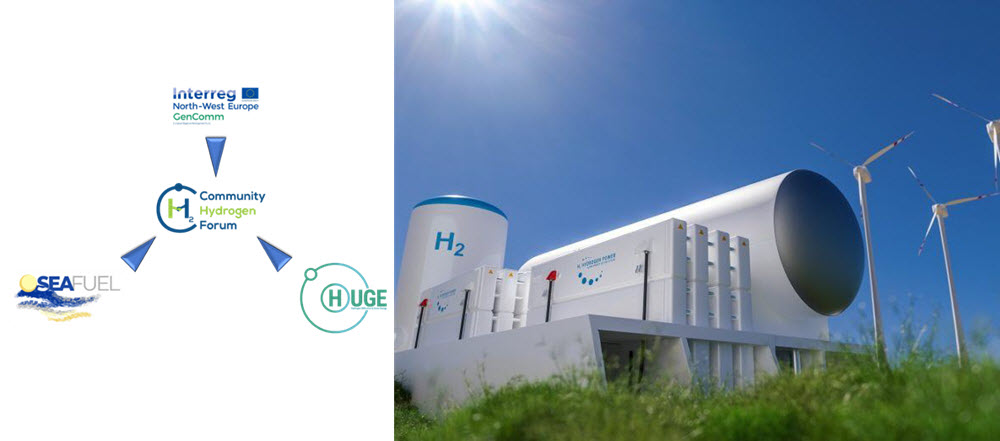Gencomm
GENCOMM will address the energy sustainability challenges of NWE communities through the implementation of smart hydrogen-based energy matrixes. The project validates the maturity of hydrogen technologies by implementing 3 pilot plants that link the 3 main northwest European renewable sources (Solar Power, Wind Power, and Bioenergy) with energy storage and the main forms of energetic demand (Heat, Power and Transportation fuels). Based on the pilot plants; integrated technical and financial simulation models will be developed. Together, both models will form a Decision Support Tool (DST) that provides a roadmap for communities to transition to renewable, hydrogen-based energy matrixes. The final goal of the project is, through the combination of sources and forms of demand, to lead NWE’s road to sustainability while granting hydrogen its position as a commercially viable energy medium for the future.


In 2017, Claremorris Energy Co-Op has successfully partnered on the Interreg project GENCOMM. The project addresses the energy sustainability challenges of NWE communities through the implementation of smart hydrogen-based energy matrixes. Developing facilities fueled by Solar Power, Wind Power and Bioenergy, the project measured their ability to produce and store hydrogen, together with its viability as a sustainable energy solution for heat, power and fuel for remote communities across NW Europe. The hydrogen produced will be used to create power, heat and for use in transportation (both as a fuel and for fuel cells in batteries). Project is being concluded
In 2017, Claremorris and Western District Energy Co-Op successfully participated as a partner on the Interreg project – cVPP – Community-based Virtual Power Plant: a novel model of radical decarbonisation based on empowerment of low-carbon community driven energy initiatives. As a result, Community Power was established, of which Claremorris and Western District Energy Co-Op are one of the founding members. The concept offers a community the opportunity to provide its energy needs with small-scale, distributed low-carbon technologies with participation from individual consumers, local energy companies or SMEs. It can empower prosumers and contribute to the democratization of energy markets. This process spurs awareness & public engagement in the energy transition. By doing so, it facilitates upscaling of low-carbon energy community-driven initiatives that have, so far, missed critical mass to trigger the energy transition.

